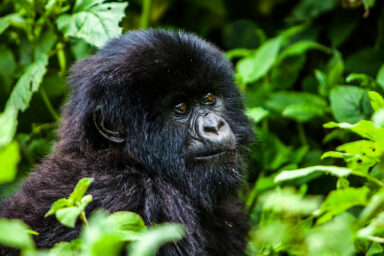The Oil Spill at Mauritius Is a Disaster — and Could Soon Get Worse
Hundreds of Portland Protesters Will See Their Criminal Cases Dropped ; America’s Window of Opportunity to Beat Back COVID-19 Is Closing ; and More Picks
Hundreds of Portland Protesters Will See Their Criminal Cases Dropped ; America’s Window of Opportunity to Beat Back COVID-19 Is Closing ; and More Picks 8/12
Hundreds of Portland Protesters Will See Their Criminal Cases Dropped as DA Announces Plan to ‘Recognize the Right to Speak’ (Reader Steve)
From the Oregonian: “Multnomah County District Attorney Mike Schmidt, leaning on a group of community representatives he called his transition team, announced Tuesday that his office will drop most of the charges filed against protesters in Portland. His prosecutors won’t pursue demonstrators accused of interfering with police, disorderly conduct, criminal trespass, escape or harassment if the allegations don’t involve ‘deliberate’ property damage, theft or force against another person or threats of force, Schmidt said. … The changes, he said, reflect his recognition that people taking to the streets are deeply frustrated by over policing and disparate treatment of people of color and that his office doesn’t want to further perpetuate the deep-seated problems.”
America’s Window of Opportunity to Beat Back COVID-19 Is Closing (Dana)
From STAT: “The good news: The United States has a window of opportunity to beat back Covid-19 before things get much, much worse. The bad news: That window is rapidly closing. And the country seems unwilling or unable to seize the moment. Winter is coming. Winter means cold and flu season, which is all but sure to complicate the task of figuring out who is sick with Covid-19 and who is suffering from a less threatening respiratory tract infection. It also means that cherished outdoor freedoms that link us to pre-Covid life — pop-up restaurant patios, picnics in parks, trips to the beach — will soon be out of reach, at least in northern parts of the country.”
The Case Against American Truck Bloat (Gerry)
From the Week: “Both manufacturers and federal regulators have known for years that big, tall vehicles are more dangerous to pedestrians and cyclists — something like 2-3 times more likely to kill when they hit someone. The reason is obvious: where a sedan will hit a standing person in the leg, usually causing them to roll onto the hood, a tall, flat-nosed truck will hit them in the torso, knocking them down and often running them over, and causing much more severe injuries. A study from the Insurance Institute of Highway Safety found that between 2009 and 2016, ‘fatal single-vehicle crashes involving SUVs increased 81 percent, more than any other type of vehicle.’”
New Study Shows Gold Mining in the Amazon Is Stopping New Trees From Growing for Years (Mili)
The author writes, “Deforestation is threatening the Amazon rainforest both from above and below ground. A new study from researchers at the University of Leeds has found that gold mining in the Amazon leeches nutrients from the soil and pollutes the surrounding area with mercury. According to the team, sites of former gold mines saw some of the lowest forest recovery rates ever recorded in rainforest terrain, and some former sites remained unable to grow new trees for up to four years after the mines closed.”
Seabird Poop Is Worth More Than $1 Billion Annually (Dana)
The author writes, “When Don Lyons, director of the Audubon Society’s Seabird Restoration Program visited a small inland valley in Japan, he found a local variety of rice colloquially called ‘cormorant rice.’ The grain got its moniker not from its size or color or area of origin, but from the seabirds whose guano fertilized the paddies in the valley. … The phenomenon that Lyons encountered is not a new one—references to the value of bird guano can be found even in the Bible, and an entire industry in South America grew around the harvesting of what many called ‘white gold.’ What is new is that scientists have now calculated an exact value for seabird poop. This week, researchers published a study in Trends in Ecology and Evolution that estimates the value of seabird nutrient deposits at up to $1.1 billion annually.”


